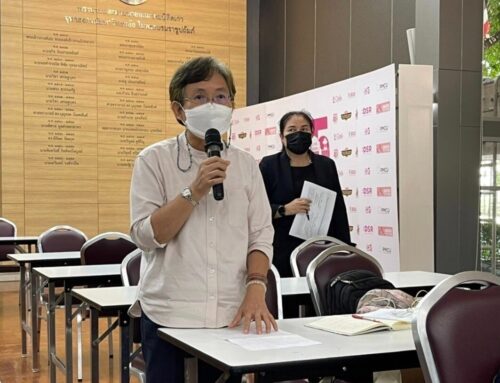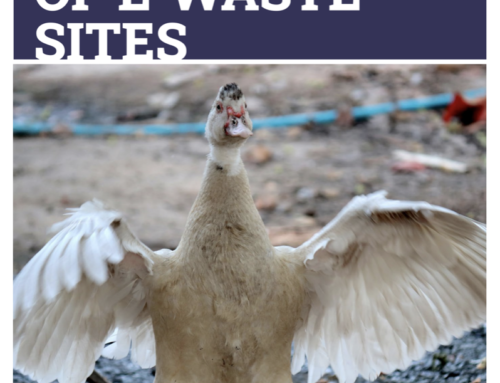Civic Engagement 4.0 leaders presenting at Chula Futures Literacy Week
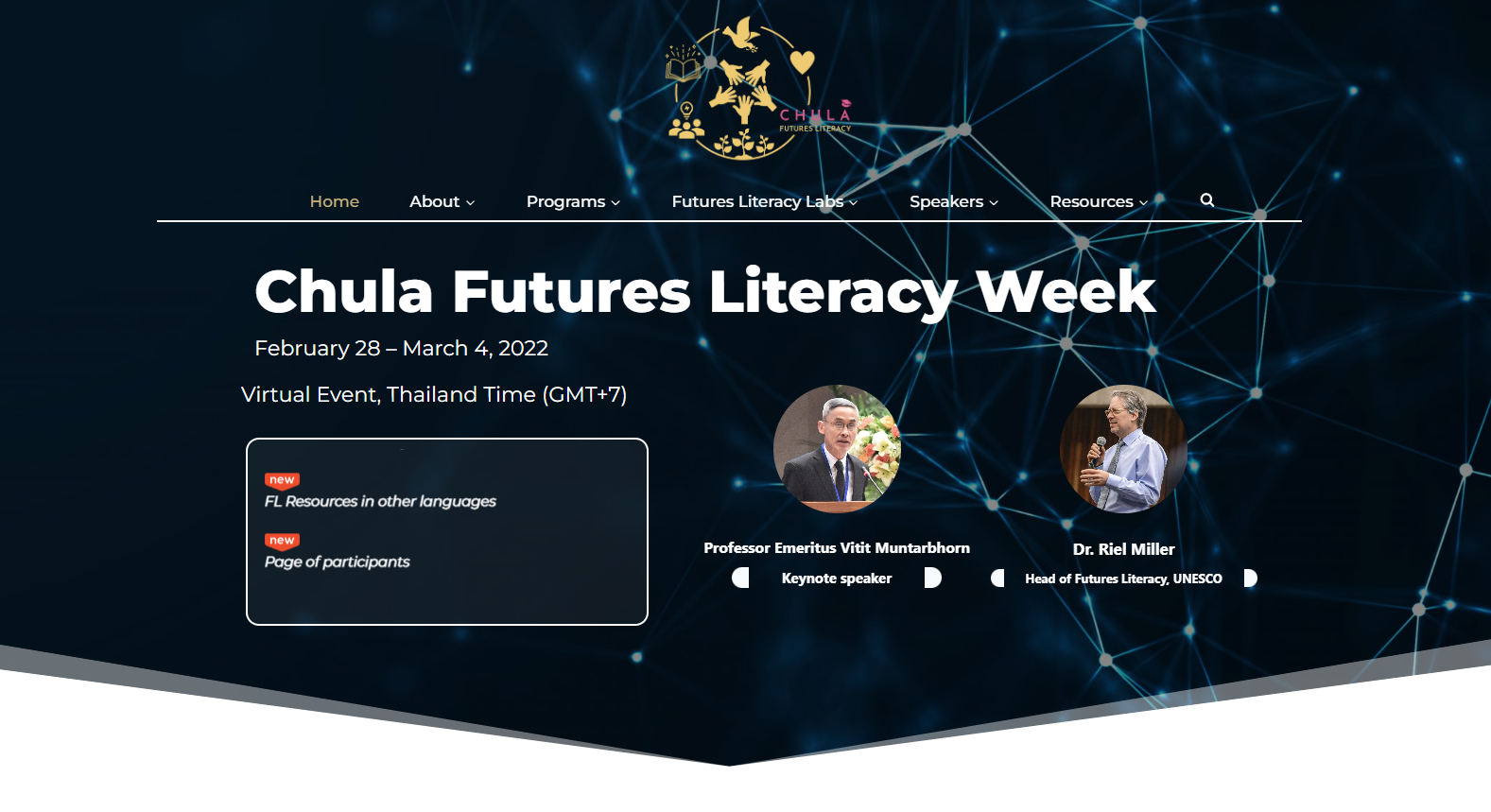
On February 28 – March 4, 2022, Chula Futures Literacy Week was organized virtually by Chualongkorn University and Thai National Commission for UNESCO. The one-week program was concluded with a culminating international conference, attended by experts from various fields globally. Civic Engagement 4.0 conveners played active roles in the program, as panel conveners, moderators and presenters in multiple sessions, sharing insights and innovative ideas that can empower us all to face new challenges caused by the Covid-19 pandemic. Participated Civic Engagement 4.0 conveners were: Dr. Hezri Adnan, Dr. Mochamad Indrawan, Ms. Penchom Saetang, Dr. Toshiyuki Doi, Mr. Ahmad Rifai, Ms. Mariko Komatsu, Dr. Yeoh Seng Guan, Dr. Dicky Sofjan, Mr. Theodore Mayer, Dr. Apiwat Wathanawaraha and Ms. Michiko Yoshida.
Panel session 4 entitled “Co-Creation of our Futures through Civic Education, Dialogue and Engagement” discussed opportunities provided for young people and communities to join forces and make their voices heard.
Mr. Ahmad Rifai, from the Kota Kita Foundation, expounded on the foundation’s Urban Citizenship Academy (UCA), which is a combination of in-class training and direct engagement with communities where youths can participate. The efforts encourage young activists to learn some specific methodologies that the foundation has been successfully used to intervene in cities.
“We want to expose them to our engaged methodologies and we also want them to connect directly with their communities,” said Mr. Rafai. “We really want them to feel how they can feel empathy, how they can understand better about issues in their communities and build upon their collective agency that can help them push changes they want to proceed with,” he continued.
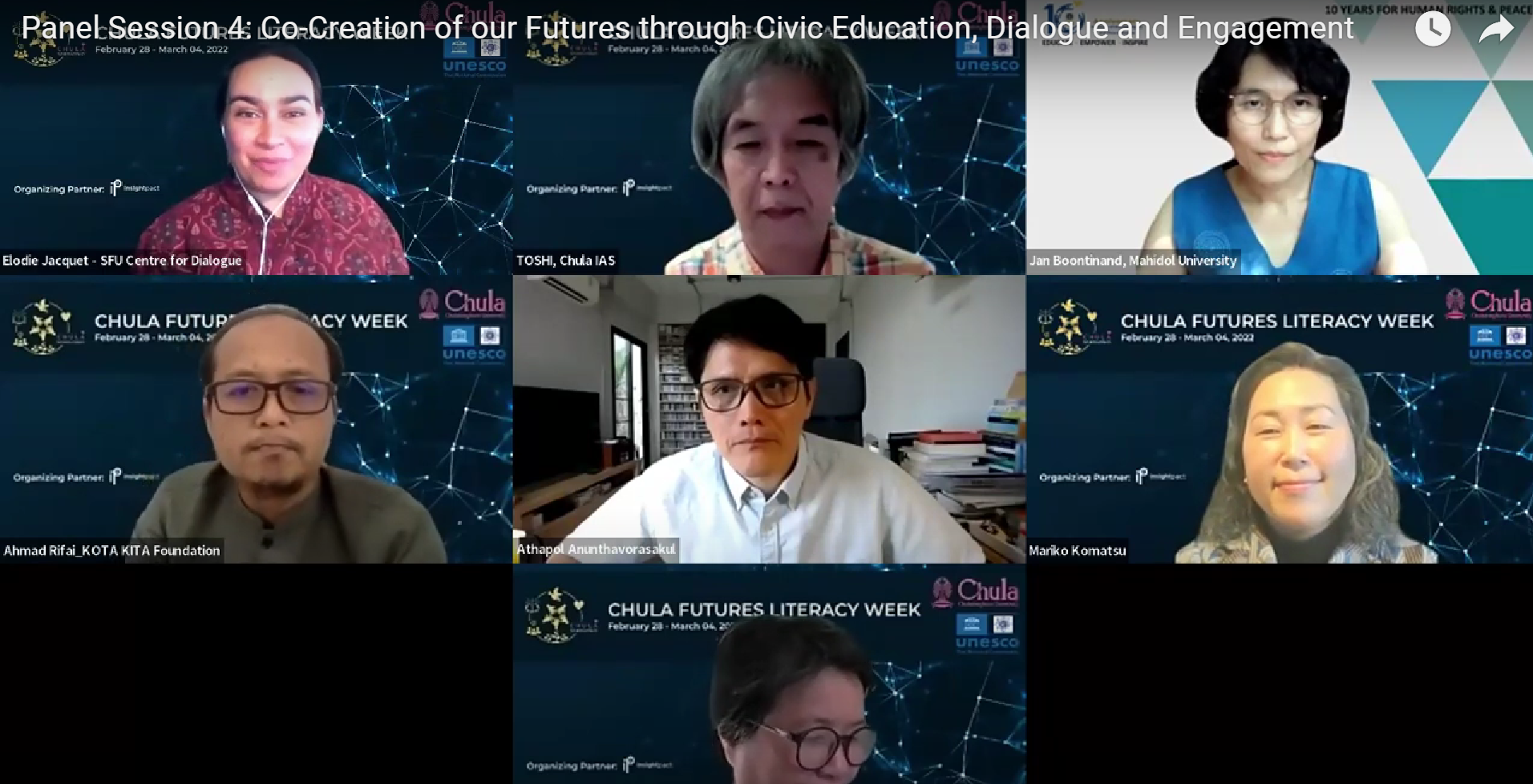
Dr. Toshiyuki Doi, from the Institute of Asian Studies at Chulalongkorn University, highlighted how stepping out from your comfort zone can generate productive engagement in societies. The engagement behaviors of people reflect the structures and the values of their larger societies. Participatory engagement is hard to be achieved in the educational systems of hierarchical societies where it is widely assumed that teachers know better than students, adults know better than children, and speaking in English is better than speaking other languages and so on.
Such engagement behaviors are perpetuated and reinforced every time engagement occurs, which is why people must step out of their comfort zones and speak out to foster participatory engagement in civic education and civic engagement.
“We must be more cautious of how teachers and students, adults and children and young people engage with each other and try to make a change, no matter how small that change might be. It certainly causes some interruption and discomfort,” said Dr. Doi.
Dr. Yeoh Seng Guan, from Monash University facilitated panel session 5 entitled “Beyond COVID-19 – Futures for All, Health as Global Commons.” The session brought together academics and practitioners from different disciplines to exchange perspectives and share insights on public health, well-being of all citizens and futures of health.
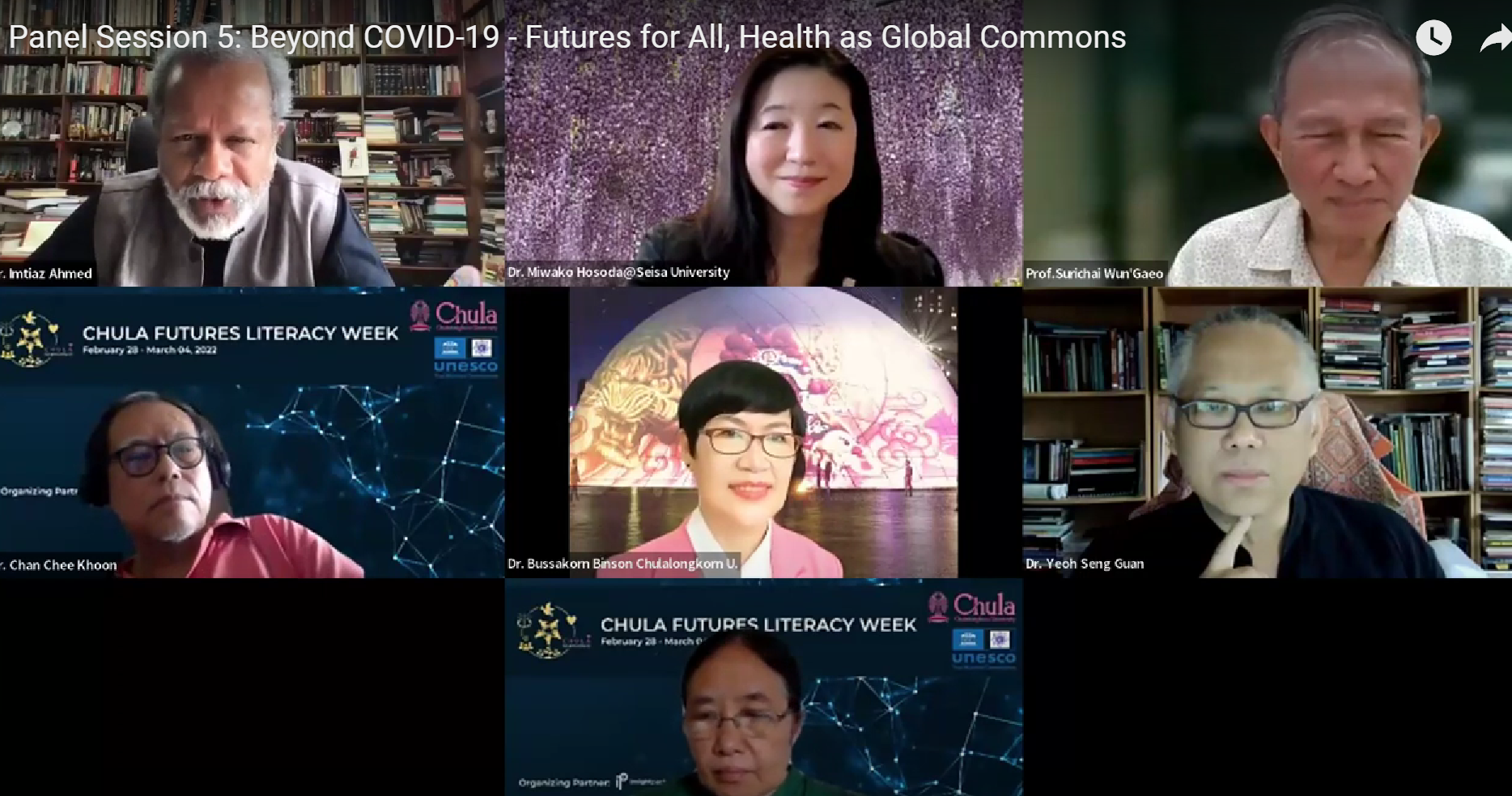
Panel session 8 convened by Dr. Dicky Sofjan, entitled “Fostering Empathy and Compassion for a Sustainable Society: The Role of Religion, Faith and Spirituality” discussed how a broad range of perspectives, faiths and modes of spirituality can bring about empathy and compassion for sustainable societies in a world facing volatile, complex and ambiguous challenges with uncertainty about what the future holds for religions and spirituality.
Mr. Theodore Mayer, from the Institute for Transformative Learning of the International Network of Engaged Buddhists (INEB), explained that the key concern of our time is that we are living in extractive and exploitative economic systems with a set of values that prizes prestige and wealth as a means of social control, which is like a secular religion in itself.
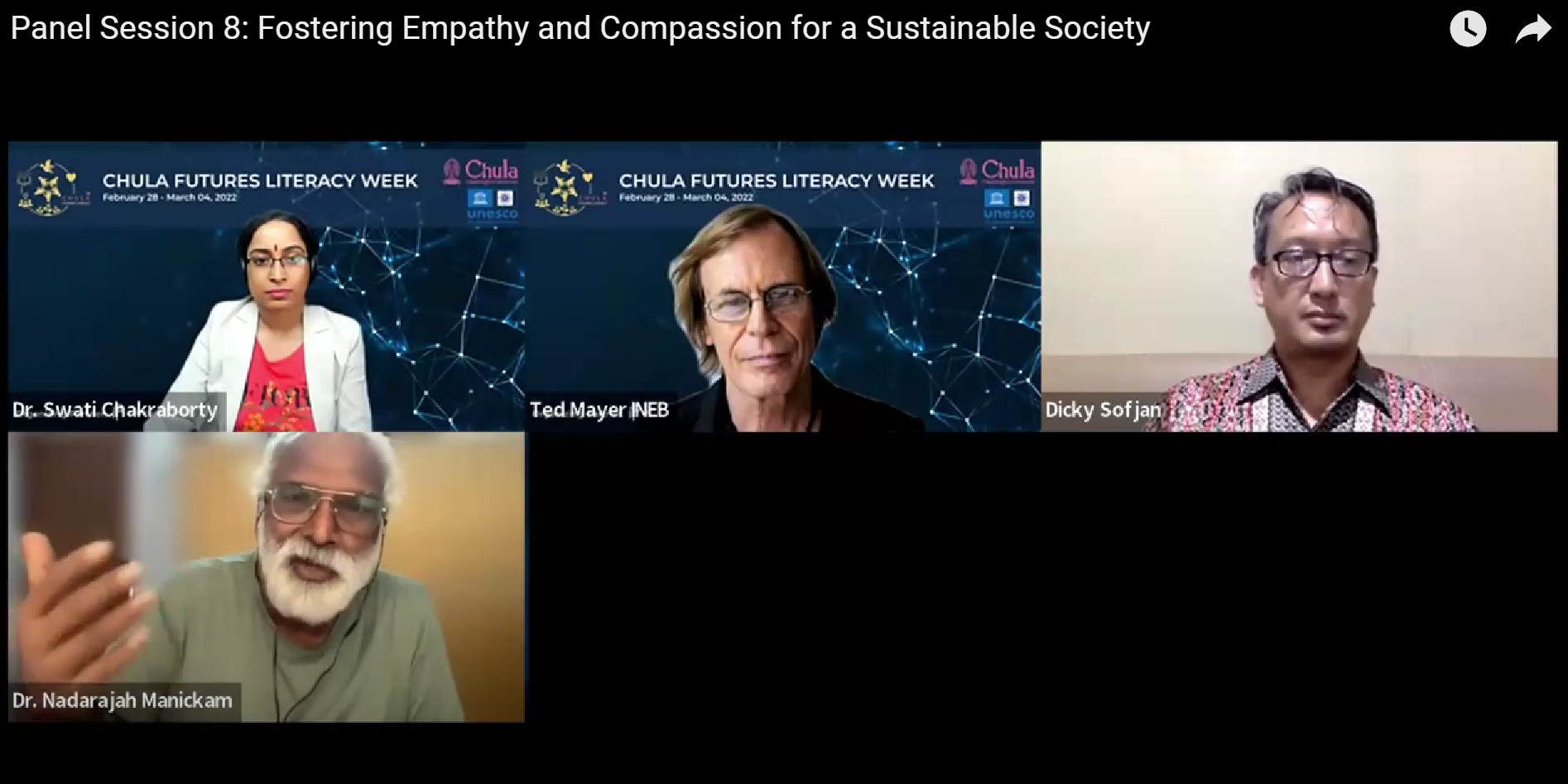
One reason religions and traditions hold out some hope is that they present an alternative way. Religious traditions can play a role but only if they have certain kinds of attitudes.
Mr. Mayer noted that engaged Buddhists with access to the world at large through the medium of English can be agents of change.
“Each one of them has taken these sources of suffering and brought them into a personal contact by means of creating institutions, leading temples, creating trainings where participants can not only look at themselves and their own suffering and work on their own growth but also analyze how those kinds of suffering occur socially,” Mr. Mayer explained.
Before closing the conference, Ms. Michiko Yoshida reminded participants of the objective of Chula Futures Literacy Week, by saying that “….by introducing Futures Literacy to our communities, we can reshape our vision, practices, approaches, and strategies to achieve sustainability, justice, and dignity in Asia and beyond. As we are here to promote civic and collective responsibilities to serve society, we all need to be committed to the path, where we are not constrained by national and short-term interests, but rather where each one of us reaffirms our commitment in our own unique way, caring for multiple voices, to work toward meaningful, and lasting solutions, to build human capacity for resilient global communities.”


